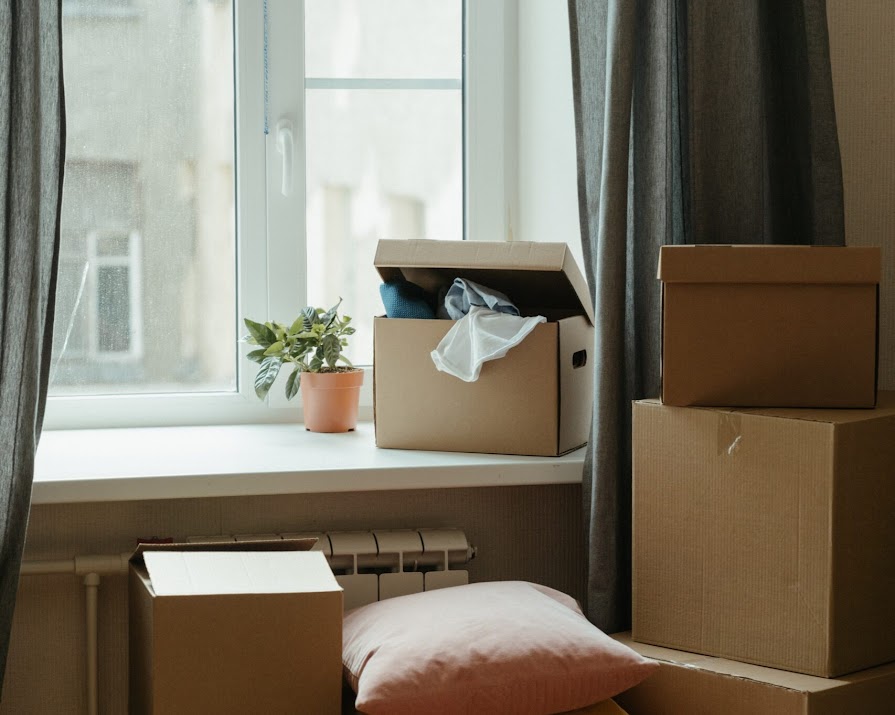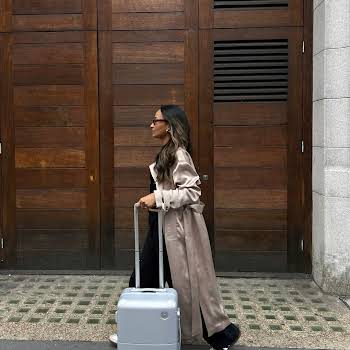
By Megan Burns
22nd Aug 2023
22nd Aug 2023
Sponsored By

From making a folder for important documents to setting up Wi-Fi before you move in, we’ve compiled a checklist to keep you on track.
Moving home is widely considered one of the most stressful things you can do, and it’s not hard to see why. Literally relocating your whole life, whether it’s to a different county or just a few streets over, requires mammoth amounts of organisation and admin.
The process can feel overwhelming, so we’ve put together a comprehensive list of everything you need to do to ensure things go smoothly, starting from a month or two out to the day itself.
A month or two to go
Get on top of utilities and services
Start making a list of all your current utilities, subscriptions and services, and find out whether you can switch your address with them, or will need to cancel and sign up for something else.
Bin collection, electricity, and insurance are all important, while it’s good to find out if things like gym memberships can be transferred to another branch.
This is also a great opportunity to shop around to make sure you’re getting the best service for things like broadband, to make sure all your entertainment needs are covered from the first day of living in your new home. For example, Virgin Media broadband has 99.9 per cent broadband reliability and ultra-fast speeds, so it’s an ideal choice.
No matter what you’re doing, where you are in the house or how many people are online at the same time, with the right Virgin Broadband set up you can always rely on a speedy connection. Whether you’re worried about dropping off an important work call, the TV buffering on the series finale or lagging during extra time – they have all the speed you need. Check their website to see if your home can access their broadband services.
And having things set up in advance means you can move in with ease. No one wants to be running to a local café to use their Wi-Fi to check emails, or without any internet to stream the kids’ favourite shows while you’re trying to unpack.
Create a folder for documents
It can be virtual or physical, but you’re going to want to have all your important information in one place, from confirmation for a switch of services to details of when the moving company is arriving, should you need to change any details last-minute.

Book a moving company
Once you know what date you’re moving, get the movers booked in. Starting the process early also gives you time to get quotes from several companies, and choose the best one. It’s a good idea to check reviews as well, to make sure that other customers have had a good experience with them. A cheaper quote won’t be much good to you if all your furniture arrives at your new home scuffed.
Start sorting through your possessions
There’s no point in packing up and transporting things you don’t use, so now is the time to start looking at things critically, from clothing to that casserole dish you’ve never used. This will take some time, so getting ahead of it is crucial – you could aim to sort through one room per week.
If you also have furniture you won’t have a place for in the new home, start looking for a new home for it now, to give you extra room in the moving van. There are plenty of ways to sell or pass things on online, from large pieces to accessories you no longer want.

Start packing
Begin acquiring boxes and start the long process of organising and packing. Start with things you won’t need, such as out-of-season clothing or books and ornaments you can live without for a few weeks.
It goes without saying, but labelling is absolutely key. And I don’t just mean writing “clothes” on the box. Create a system that makes sense for you, but I promise you that you’ll always forget what’s in each box, so a detailed inventory will be a lifesaver.
Whether that’s a running list written on the outside of each box (e.g. Kitchen – cutlery drawer contents, baking equipment, tea towels) or numbering things and creating a shared document of what’s in each box, it will be so much more helpful than searching all eight boxes marked “kitchen” for a tin opener on your first night.
Request time off work
If you’re moving during the week, you’ll need to book at least the day of the move-off, and many people take the day before or after as well. Get your dates in early to make sure your chances of getting it approved are high.
A week or two before

Rope in friends and family
If you’re going to need some help, whether it’s a pal with a van or just someone to mind the kids for the day of the move, ask them in plenty of time so they can plan ahead.
Start using up food
Sure, it’s easy to bring dry food items with you, but it’s harder to bring frozen and refrigerated food, so start making your way through the things in your fridge to avoid them being thrown away come moving day.
Start the serious packing
You need to start packing more of the bulk of your household, so it’s a good idea to decide on some clothes for everyone to keep unpacked (set aside a few suitcases so these things have something to be packed into the night before the move).
Things like pieces of furniture that aren’t absolutely essential can start to be disassembled or wrapped up as needed. When disassembling anything, make sure to put all the screws and parts in a bag together, sealed tightly and attached to the piece of furniture in question.

Start cleaning
A deep clean of a whole house takes a long time, so start by cleaning any areas that you free up when packing such as inside cupboards and in spaces where furniture has been moved from. It won’t stop you from needing to give the whole place a clean once all the furniture is gone, but it will certainly make the process faster.
Alternatively, if you want to get professionals in, make sure to book them as early as possible to secure the time and day you need.
Check-in
This is a good time to confirm anything like times for moving vans to arrive, handovers of keys and any utility connections that you have organised.

Think about what you’ll need
As you pack up your final belongings, hold back anything that you’ll need for the day of the move and keep it separate. As well as essentials like toothbrushes, things like scissors and tape will be useful.
If you’re planning to crack open a bottle of wine to celebrate your new home or thank friends for helping, don’t pack the bottle opener away, and even if you’re planning on ordering takeaway for your first dinner, having a few picnic plates to hand (or at the very least forks) might make things much easier.
Having some snacks and drinks might also be welcome to keep everyone going throughout the day.
Moving day
Protect floors and furniture
It’s easy for wooden floors or furniture to get scratched when so many things are being moved around, so consider putting down cardboard or old rugs, while furniture can be wrapped in blankets or sheets.
You can also advise movers if anything is particularly delicate, and give clear instructions about where you want things to be placed, to avoid things having to be moved multiple times.
Do a final check
Once everything is gone, do a final walk-through of your old home to make sure nothing has been left behind, everything is switched off, and doors and windows are locked. If it’s a rental property, take pictures of everything to prove how it was left.
Prioritise the essentials
You won’t have anything even close to ready on your first night in the house, but think about what’s most important. Set up the broadband and a speaker so you can listen to music while you unpack, or put the TV on for the kids. If beds need to be assembled, start with those before any less pressing items, and hang curtains in bedrooms before the kitchen.
To find out more about Virgin Media broadband, visit virginmedia.ie.























